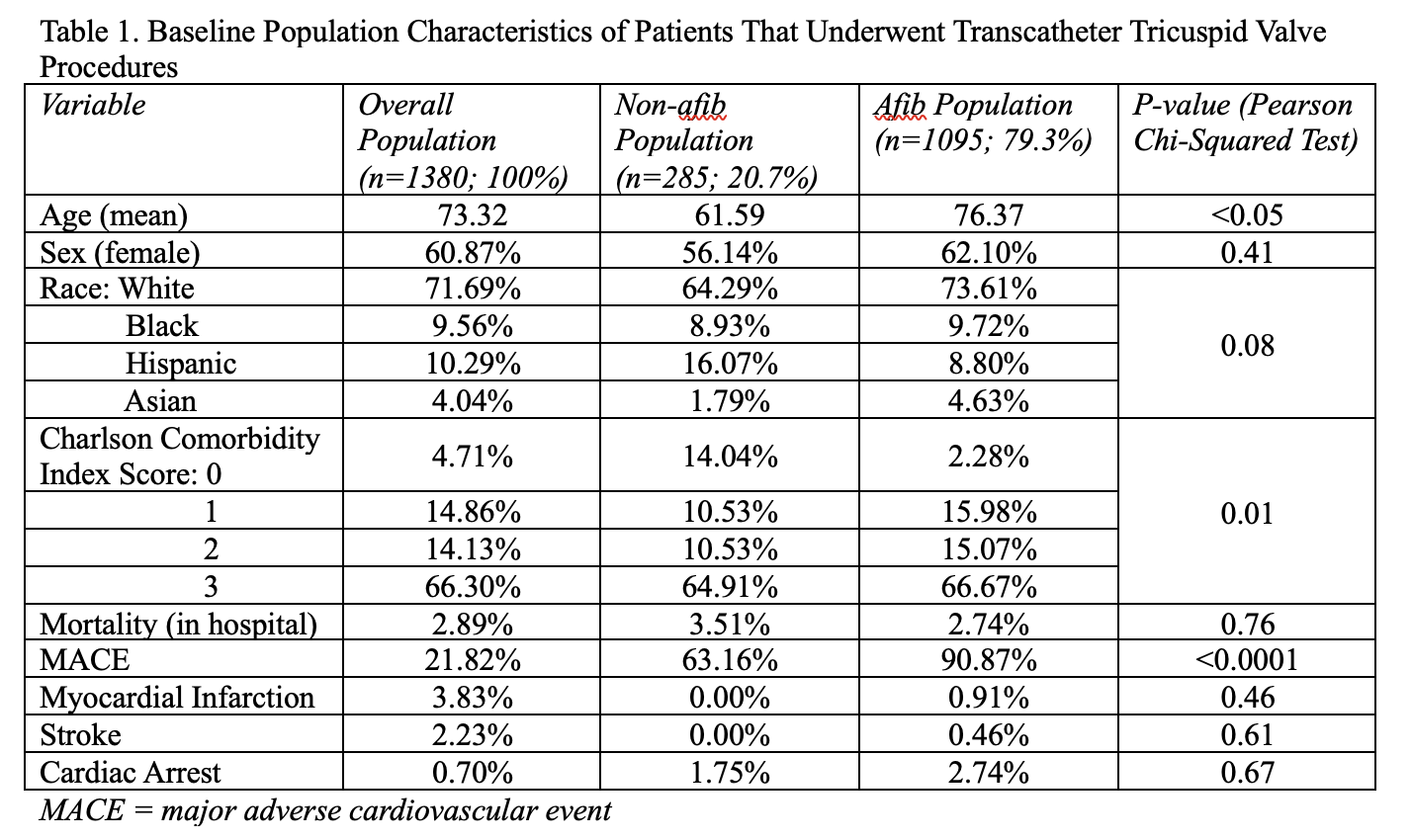Background: Transcatheter tricuspid valve procedures (TTVP) are used to manage tricuspid regurgitation, however these procedures are less common than other transcatheter valve procedures. Limited literature on TTVP exists, especially with regards to predictors of major outcomes. Atrial fibrillation (afib) is associated with increased mortality, stroke, cardiogenic shock, need for permanent pacemaker, AKI, major bleeding in those that underwent transcatheter aortic valve replacement (TAVR).(1-6) Afib is also associated with increased mortality, major bleeding, heart failure hospitalization, stroke, and major adverse cardiovascular events (MACE) in those that underwent transcatheter mitral valve repair.(7-9) This study will investigate the effect of concomitant afib on outcomes of those undergoing TTVP.
Methods: A retrospective cross-sectional design was implemented using the National Inpatient Sample, a database of U.S. hospitalizations between January 2017 and December 2019. Within this population, adults who had undergone TTVP were selected. Pearson chi-squared analysis was used to compare prevalence of baseline characteristics. Afib was used to predict major adverse cardiovascular event (MACE). Multivariate logistic regression analysis was performed adjusted for age, gender, and race, with a p-value < 0.2 in univariate screen.
Results: A total of 1380 patients underwent TTVP, and 1095 (79.35%) had afib. Patients with afib were older with mean age of 76.37 years compared to the non-afib group with mean age of 61.59 years, p < 0.05 (Table 1). Both the afib group and non-afib group were made up of slightly more females. There was no significant difference in the afib and non-afib group when it came to race composition. With regards to charlson comorbidity index score, the two groups were statistically different, p=0.003. Those with afib had a higher prevalence of MACE than those without, p< 0.0001. For those that underwent TTVP, having afib increased the odds of MACE by 3.29 compared to those without afib (OR 3.29; 95% CI 1.65 to 6.57; p= 0.001) (Table 2). For individual outcomes that comprise MACE having afib increased the odds of heart failure by 3.05 compared to those without afib (OR 3.05; 95% CI 1.54 to 6.05; p= 0.001) in those that underwent TTVP. Mortality was not statistically significant between those with afib (2.74%) and those without afib (3.51%).
Conclusions: This study shows that in patients who underwent TTVP, afib was associated with increased MACE, specifically heart failure. Predictors of outcomes after TTVP in patients with afib should be evaluated in future studies. This may help to develop a risk score similar to ENVISAGE for those with afib that may undergo TAVR.(10) Outcomes of that comprise the ENVISAGE include excessive alcohol use, older age, renal failure, liver disease, peripheral artery disease, major/ predisposition bleeding, and NYHA III/IV.


